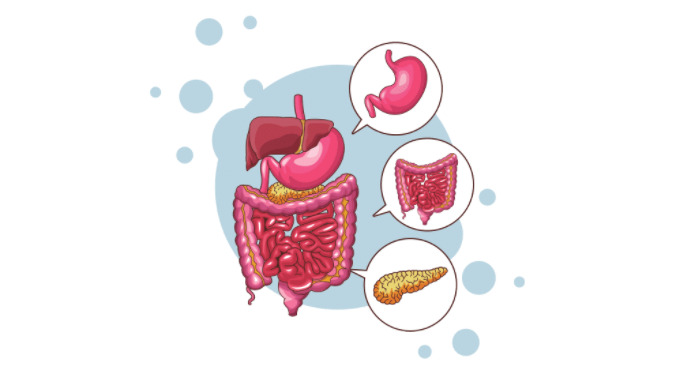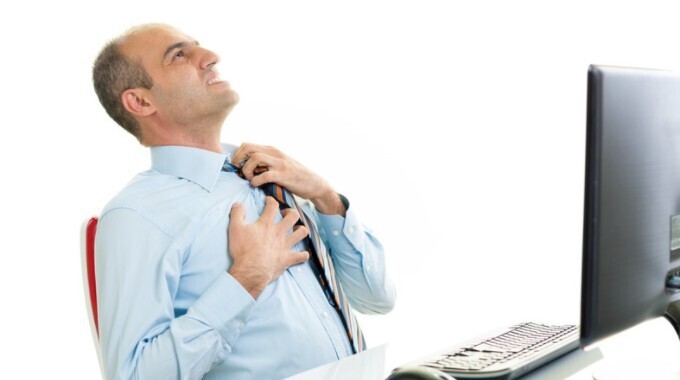Gas Pain in Chest
Gas pain in chest is a common symptom in many individuals suffering from indigestion. It is common to experience pain in the chest after eating large meals.
Gas pain in the chest is also commonly felt after eating foods that are rich in fiber. It can also occur when you are not eating enough fiber, or when eating fiber that is not digested properly.
How to Identify the Signs of Gas?
Signs or symptoms of gas or gas pains include:
- Bloating
- Nausea
- Burping
- Belching
- Indigestion
- Knotted stomach
- Excess flatulence
- Passing gas through your backside
- Pain that shifts to different parts of the abdomen
- Loss of appetite
- Quick, sharp pains that suddenly come and end
[bctt tweet=”If you feel an aching in your chest area, it may be more than just gas.” via=”no”]
How to Know that Its Gas Pain in Chest?
- You may experience food intolerance that may upset your digestive system and causing you to build up gas.
- Artificial sweeteners can cause digestive upset symptoms and signs, including gas pains in chest.
- Carbonated drinks which contain carbon dioxide gas (CO2), like soda, can cause an air bubble that can create gas pain in chest.
- Overeating can also cause gas pain in the chest.
- Sometimes, while taking a lot of fiber-rich foods can result in too much fiber in your gut, producing gas for longer periods.
- Food poisoning can cause gas pain in the chest.
Consider medical conditions that cause gas pains
- Due to heartburn or indigestion, stomach acid leaks up into your esophagus and causes gas pain in your chest
- Gastroesophageal reflux disease (GERD), also known as acid reflux, can cause air to become trapped in your esophagus.
- Gallbladder disease can cause pains in the chest due to excess gas formation.
- Gas builds up in the digestive system can be caused by Inflammatory bowel disease (IBD).
- IBD disease, known as inflammatory bowel disease can cause gas build up in the digestive system or tract.
Causes of Gas Pain in Chest
Heartburn
Heartburn, also known as acid indigestion, is a burning sensation in the region of the chest. It is caused by the excess of stomach acid, which passes through the esophagus to the throat and causes this sensation. It may be accompanied by a sharp stabbing sensation in the chest. If you belch or pass gas and the pain goes away, you could just be experiencing stomach pain or heartburn.
- It is a burning sensation in your stomach that moves up into the chest.
- It can happen earlier after eating, while lying down or when you bend over.
- This may awaken you from sleep, especially if you have eaten within two hours of going to bed.
- You may get a sour taste in your mouth — more often when lying down..
- Taking medicines like antacids usually stops the heartburn.
[bctt tweet=”IBD disease, known as inflammatory bowel disease can cause gas build up in the digestive system or tract.” via=”no”]
Food intolerance
In case of many times, food intolerances are to blame for gas pain in chest. If you have a food intolerance, it can upset the digestive system as well as causing extra gas. The causes of gas buildup are –
Lactose intolerance and gluten intolerance .
A person lacking of the enzymes that are needed to break down certain food components may experience bloating, abdominal pain, and excessive gas.
Food Poisoning:
Eating contaminated food can cause food poisoning (eating food contaminated with bacteria, viruses, or parasites). It can cause sudden gas pain in your chest if you’ve never experienced before. There includes some symptoms:
- nausea
- vomiting
- blood in the stool
- fever
- abdominal pain
- diarrhea
Artificial sweeteners
In case of some people, taking a diet which is high in artificial sweeteners can cause excess gas. It is also a reason for gas pain in the chest.
Excess carbonation
Gas pain in chest can be seen because of excess carbonation. Soda, tonic water, or sparkling water contains carbon dioxide gases. Too much of this gas can make a person burp and it is the reason for gas pain in the chest.
Swallowing air
Gas pain in the chest can be happened because of excess swallowing air. It is similar to the carbon dioxide in fizzy drinks. The air we swallow while eating, drinking, or chewing gum can become trapped in the digestive system.
Swallowing too much air can cause a buildup of gas in the gastrointestinal tract, which can lead to gas pain in the chest.
[bctt tweet=”Gallbladder diseases can often cause excess gas and gas pain in chest.” via=”no”]
Inflammatory conditions
Gas pain in the chest is related to inflammatory conditions. Some of the inflammatory conditions including IBD (inflammatory bowel disease) such as Crohn’s Disease (ulcerative colitis) may cause gas to build up in the digestive system.
Other digestive tract problems, such as those due to diabetes mellitus, can cause similar symptoms.
Chronic inflammatory conditions can also produce the following symptoms:
- pain in the lower or upper abdomen
- excessive flatulence
- rectal bleeding
- diarrhea
- constipation
- night sweats
- general fatigue
- gastrointestinal bleeding
- weight loss
- nausea
Irritable bowel syndrome
Irritable bowel syndrome (IBS) is a non-inflammatory condition. It causes gastrointestinal symptoms in the body. These symptoms are triggered by stress and can be worsen after meals. Irritable bowel syndrome can cause gas pain, which may occur in the chest, as well as:
- abdominal pain
- diarrhea
- constipation
- cramps
Gallbladder or biliary tree diseases
Gas pain in the chest is related to gallbladder or biliary tree disease also. Gallbladder diseases can cause gas pain in your chest, especially if some condition is causing your gallbladder not to empty completely. Gallbladder diseases can often cause excess gas and gas pain in the chest. Some of the symptoms may include:
- loss of appetite
- vomiting
- chills
- pale or off-colored stools
- nausea
Stomach ulcer
Due to the inflammation of the walls of the stomach, stomach ulcers can cause pain in the chest. This type of pain can easily be mistaken as a heart pain, due to the proximity of the two organs.
It’s a localized pain in the middle of the chest, but that can radiate through all the right side of the chest. It depends on the location of the ulcer. This pain is more common after meals, and it can cause bloating, nausea and vomiting.
Diagnosis
This is difficult for doctors to diagnose gas pain in the chest based on a preliminary physical examination alone. So they’ll likely order follow-up tests to be sure of what it is.
The tests they may order include:
- Blood or skin tests to check for food intolerance
- EKG to make sure that your heart isn’t the cause of the discomfort.
- Blood tests to search for infections and markers of celiac disease or Crohn’s disease.
- Endoscopy
- Stool Test.
- Lactose intolerance test
- Abdominal ultrasound Test or CT Scan
Gas Pain vs. Heart Pain
Heart attacks is a fatal disease of the heart that causes a shortage of blood supply to the heart. It is a type of heart attack, which is a medical emergency. The person can experience chest tightness, shortness of breath, fainting, and chest pain.
If you feel an aching in your chest area, it may be more than just gas. Check the following symptoms along with severe gas pains. If so, you need medical help for a heart attack immediately
Your chest pain may very well be cardiac-related and not due to gas pains if you experience any of these signs:
- Dizziness or lightheadedness
- Profuse and sudden sweating
- Heart palpitations and increased heart rate
- Intense pressure on your chest
- Heaviness, pressure or squeezing pain in the chest
- Lightheadedness
- Nausea or vomiting
- Pain in one or both arms
- Jaw pain
- Weakness
- Pain in the left shoulder
- Pain in the neck or back
- Pain in the stomach
- Shortness of breath
- Sudden and unexplained fatigue
- Unexplained anxiety
How to Relieve Gas Pain in Chest?
Treatment for Gas Pain in the Chest:
Gas pain in the chest is curable with the help of several treatments and home remedies (gas pain in chest home remedies). The following home remedies may help to ease the pain of excess gas in the chest:
Drink Warm Liquids
You should drink plenty of liquids to move excess gas through the digestive system, which can ease gas pain. Avoid drinking of carbonated beverages. To ease pain and discomfort, you can take warm water or herbal teas.
Eat some ginger
Ginger is well known for its anti-inflammatory properties. It is one of the best natural remedies to get relief from the uncomfortable gas pain in chest. You can chew some ginger or drink ginger tea to get rid of gas pain in the chest.
Avoid possible triggers of gas pain in the chest
The possible triggers of gas pain in the chest include carbonated drinks and sodas, milk and dairy products, and gluten. If you unable to find out the exact reasons for the gas pain in the chest, it may be best to avoid any possible digestive triggers.
Exercise
Exercise is very beneficial. It helps gas to move through the digestive system to be eliminated.
Medical Treatments
In case of gas pain in the chest, medical treatment options are available to help you. Over-the-counter medications, like – bismuth subsalicylate (Pepto Bismol) may remove or eliminate some indigestion symptoms.
According to the prescription of doctor, you have to take treatments for these chronic conditions, for example, IBS, GERD, UC, or Crohn’s disease.
Prevention of Gas Pain in the Chest
You can prevent gas pain in the chest by avoiding common triggers, including:
- foods that cause allergies or intolerances
- greasy and spicy foods
- contaminated food
- caffeinated or carbonated beverages
- artificial sweeteners or sugar alcohols
Regular exercise can also help you to get prevention from the gas pain in the chest.
Complications of Gas Pain in the Chest
Complications related to excess gas in the chest are mostly due to an underlying condition. For instance, people with severe food poisoning or food intolerances may be at risk of complications.
Mild cases of food poisoning may pass within 24 hours, but severe cases of food poisoning can be life-threatening.
Gas pain in chest and shoulder should resolve on its own and with home treatment. There are several complications that can occur with gas pain as a side effect, however.
Symptoms of anaphylaxis or food poisoning need immediate medical care. If you’re experiencing any of the following, seek emergency medical attention:
- rashes or feeling warm in the face
- struggling to keep liquids down
- a high fever
- swelling of the throat, face, or mouth
- neurological symptoms like blurred vision or tingling
- bloody stools or vomit
- diarrhea and
- dehydration
When a person experiences chest pain along with these signs and symptoms, they should seek emergency medical care.
Gallstones can cause inflammation of the gallbladder. This may also cause blockages of the pancreatic ducts or bile duct.
Pancreatitis generally requires hospitalization and both can impair digestion. You should also take emergency medical treatment if you experience symptoms of gallbladder complications like:
- yellowing of the skin or eyes
- high fever
- chills
- severe abdominal pain
How Long Can gas pain last?
Gas pain normally occurs in the lower body and is caused by the gas in the intestine. Sometimes, the gas becomes trapped in the abdomen and causes the pain. The pain can last for a few hours (24-48 hours), but normally it lasts for a couple of days.
Does drinking water relieve gas?
Drinking water may help you to reduce bloat by ridding the body of excess sodium.
What should I drink if I have gas?
You can water with a squeeze of lemon or lime. Drinking teas that can help ease digestion and reduce gas, such as those that contain chamomile, fennel, peppermint, or turmeric.
Does gas pain go away on its own?
Gas usually passes on its own after a few hours. Some people may be able to relieve pain due to trapped gas using natural remedies, certain body positions, or OTC medications.
What foods causes gas pains?
Foods most often linked to intestinal gas include:
- Beans and lentils
- Asparagus, broccoli
- Brussels sprouts, cabbage, and other vegetables
- Whole grains, such as brown rice, oatmeal, and whole wheat
- Fructose, a natural sugar found in artichokes, onions, pears, wheat, and some soft drinks
- Lactose, the natural sugar found in milk
- Fruits, oat bran, peas, and other foods high in soluble fiber
- Corn, pasta
- Potatoes, and other foods rich in starch
- Sorbitol (the artificial sweetener)
What side do you lay on for gas pain?
You can sleep on your left side that allows gravity to work its magic on your digestive tract or system, pushing waste (along with the trapped gas in chest for days) along through the different parts of the colon. This makes the left side the best sleeping position for gas.



